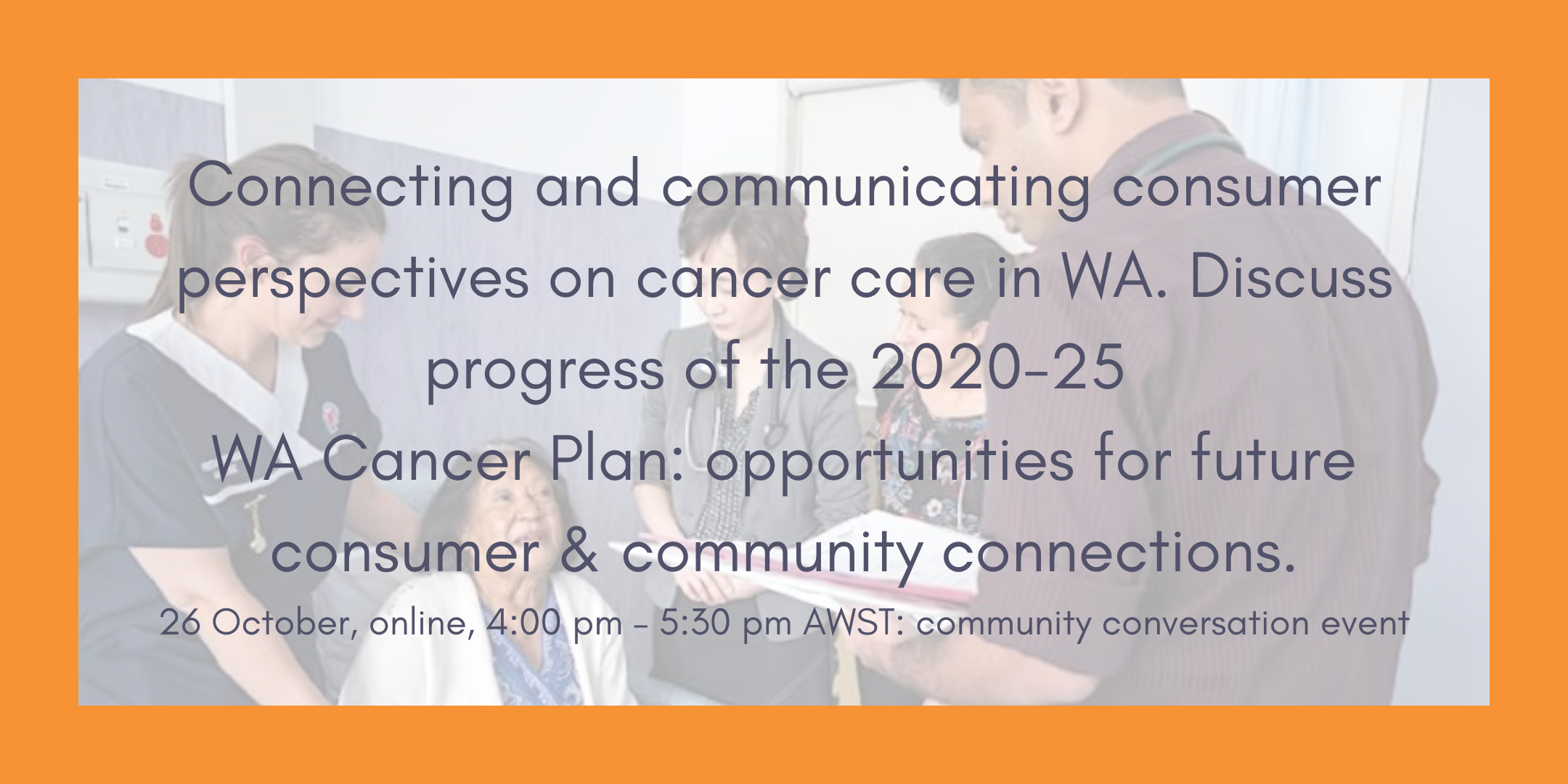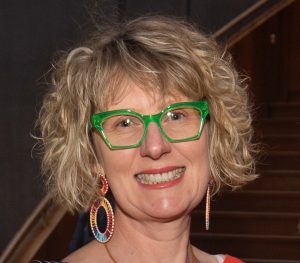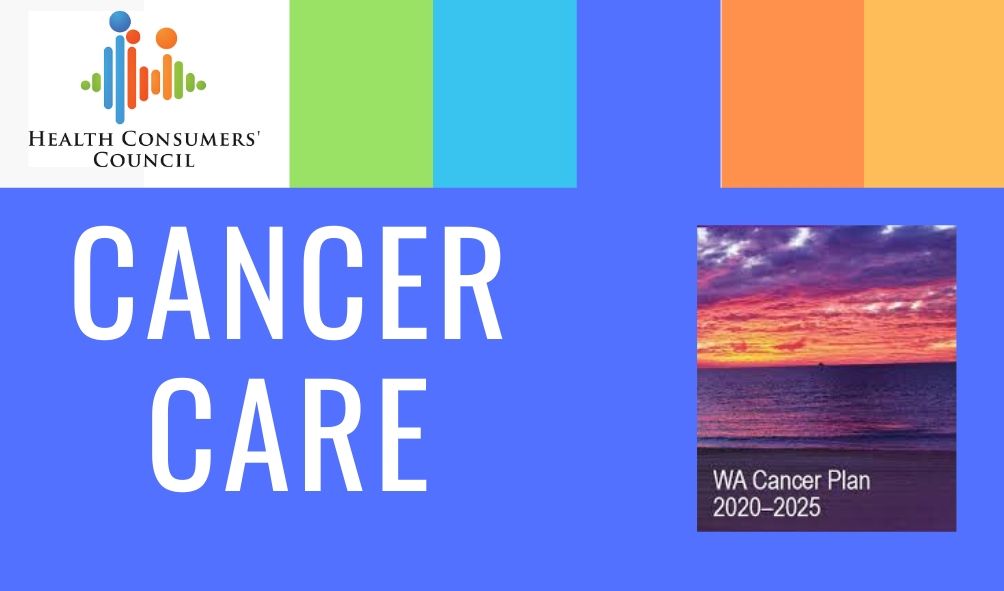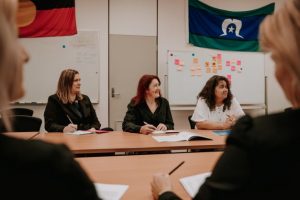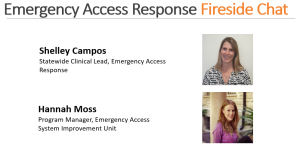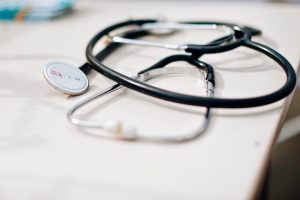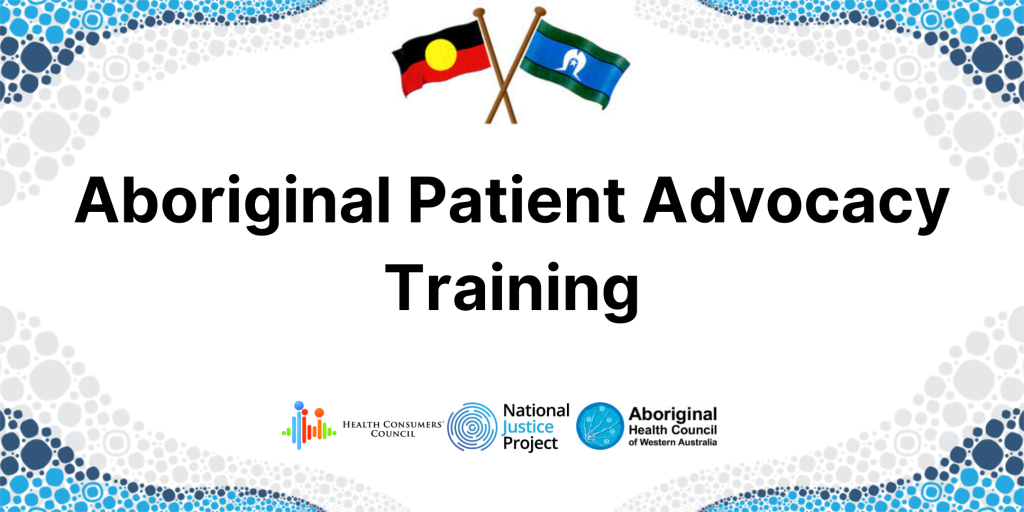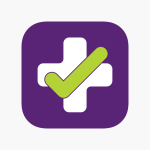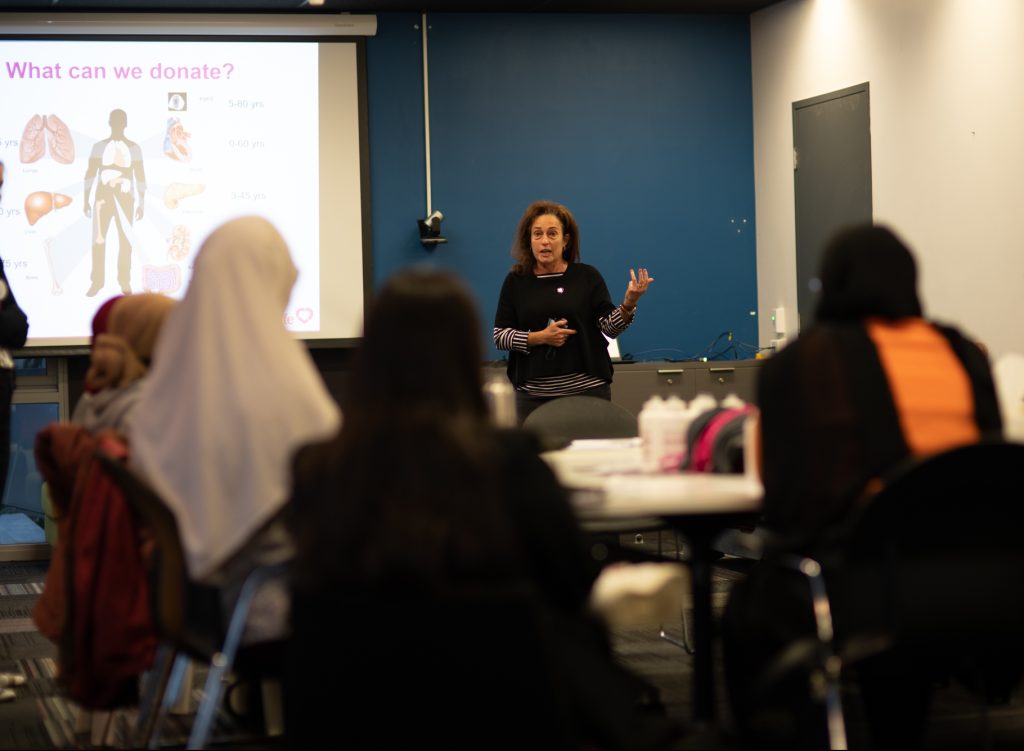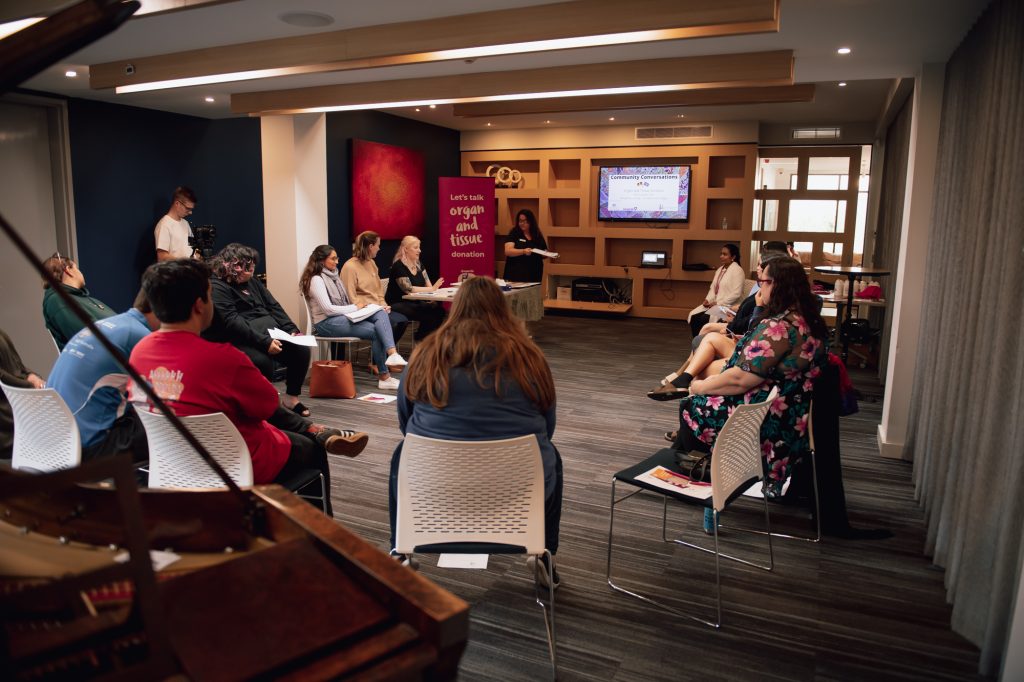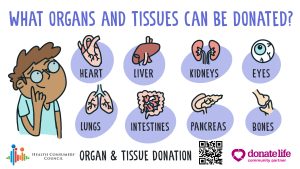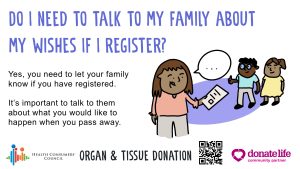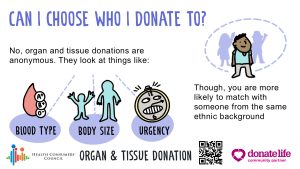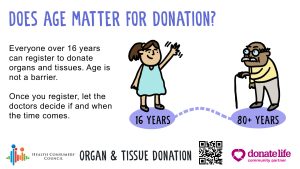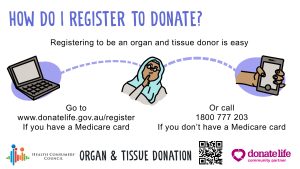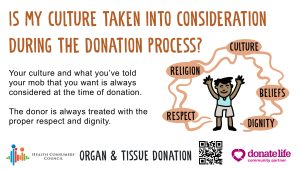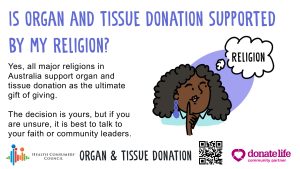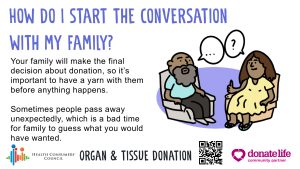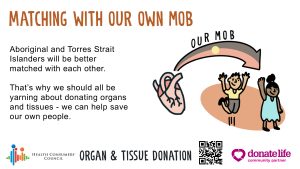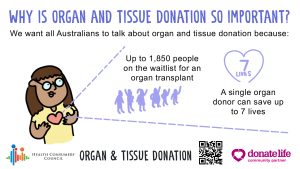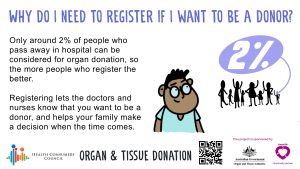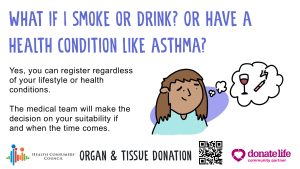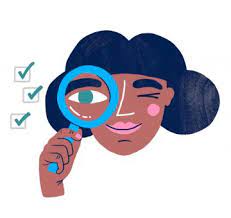When the Health Consumers’ Council (HCC) adopted its new Rules to conform with the updated Incorporations Act 2015, our Board became a Management Committee. The New Act provides some differentiation between larger organisations who have Boards as opposed to smaller organisations who have Management Committees.
2023-24 Management Committee
Mallika Macleod – Chair
Mallika brings many years of not-for-profit Board experience at state and national levels as a ‘young’ professional. She believes in the importance of good governance to support an Executive Director to uphold the vision and mission. Mallika is passionate about the importance of upholding citizens’ rights, and the key role of peak advocacy bodies in this. She believes human rights, and contemporary practice must be part of the dialogue at all levels, and we must have a body that can call out those institutions that are stuck in the dark ages and do not respect the rights of health customers and patients. She is the General Manager at Tura New Music and was previously the Director of Client Services at Disability in the Arts, Disadvantage in the Arts Australia (DADAA).
Niall Naghten – Deputy Chair
Niall has been a Certified Practicing Marketer of the Australian Marketing Institute since 2018 and has over 15 years’ experience at senior levels in a variety of industries. Originally from Ireland, Niall emigrated to Australia in 2012 and most recently moved into a senior consultancy role after leading the marketing and communications function at Activ Foundation for over four years.
While working at Activ Foundation, Niall helped to establish the crisis response team and eventually served as its Chair during the COVID-19 pandemic. This role saw him completely redirect the organisation’s focus to ensure that the health needs of thousands of individuals with intellectual disability were met.
Niall is passionate about ensuring that every person has equitable access to information that they need to make decisions about their health.
Rebecca Carbone – Secretary
In November 2014, Rebecca underwent surgery to partially resect a tumor located in her Cerebellum/Brain Stem. This was followed by a massive brain hemorrhage, and she was left with Locked-in-Syndrome (LiS). Her prognosis was dire – she was assessed as unable to be rehabilitated. She had three further inoperable tumors in 2015 and focused on intensive rehabilitation. She has learned to walk, see, speak, read, and write again. In 2018, she passed a driving assessment through the Independent Living Centre and has returned to study.
Prior to the surgery Rebecca worked her way from what was essentially a personal assistant role to a Quality and Welding Inspector trained to International ASME Standard. A traditionally masculine occupation, it took hard work and determination to achieve this.
Rebecca is extremely passionate about all aspects of health and wellbeing. She believes that health should be approached with a vision towards wellness as opposed to illness. Each consumer should be empowered to research and investigate methods of scientifically proven medical intervention and/or treatment so as to make an informed decision as to what will work best for their needs. She brings a very unique perspective to HCC’s Management Committee as a consumer; a woman with a disability that lives with chronic illnesses; a younger adult with an acquired brain injury that is commonly associated with the elderly; the cultural experience of as a child of Southern European migrants; and a volunteer in the health sector.
Ian Ludlow – Treasurer
Ian is a Chartered Accountant Fellow. Following eight years employed in public accounting practice, has over 25 years of experience working at senior levels in not-for-profit organisations serving the community in education, youth and adult accommodation, conference centre operations, large scale property management, insurance and risk management, and mental health services. He is currently the Business Manager for two schools in the Swan Christian Education Association.
He is involved in the community including volunteering with the Anglican Church for more than 30 years, with experience ranging from local parish, Central Diocese, National Church, governance, large scale youth work, and including company directorships of large and very large ($100M+ turnover) church entities delivering aged care. In more recent years, volunteering has included with Scouts WA as a leader supporting Cub Scout, Scout, and Venturer Scout sections in his local area.
Michael Crowley
Michael is an experienced legal practitioner and law academic in both Western Australia and New South Wales. He has over ten years’ experience teaching law at Edith Cowan University whilst maintaining a right of private practice as a barrister. As an academic, he taught and coordinated a range of law units including criminal law, advanced criminal law, terrorism and the law, security and the law, public international law, coronial law and mortuary practice, and the law of evidence. Other roles included mooting coordinator and course coordinator roles in law and forensic investigation and membership of ECU’s Security Research Institute. Research interests focused on international humanitarian law and terrorism. During this period as an academic he had extensive involvement in key international mooting competitions as moot problem writer, finals judge, arbitrator, moot executive committee member and coach. Previously in New South Wales his experience was as defense counsel in criminal law jury trials and conducting appellate work.
For some 10 years he was a lecturer in criminal law and procedure with the Law Extension Committee within the University of Sydney and a revising examiner for the Legal Practice Board of New South Wales. Before moving from New South Wales to Western Australia he was appointed visiting lecturer in law at Chongqing Technology and Business University, Chongqing, People’s Republic of China.
Meredith Waters
Meredith lives in Esperance and identifies as a carer for a family member, and an enthusiastic consumer representative for people living in rural and regional Australia. She is a member of a District Health Advisory Council and is a Board Member on the WA Country Health Service. She also runs a local radio program.
Meredith has been a board member with WACHS for the past five years as a consumer representative and has seen firsthand how much more there is to be done in the area of effective consumer representation. She is particularly interested in health in regional and rural Australia.
Kim Brewster
Kim is passionate about person-centred care, improving healthcare outcomes for all West Australians, and ensuring the consumer’s voice is heard in interactions with healthcare staff and the health system more broadly.
Kim’s background is in Anthropology and Sociology and Human Rights Law. She is an experienced researcher and policy professional, having previously worked in research and evaluation – utilising research skills to develop strategic recommendations to inform policy, marketing campaigns, and decision making at various levels from Ministers through to policy and research teams.
She has worked for a number of not-for-profit organisations over the years and currently works in the Aboriginal Community Controlled Health Sector (ACCHS) where she is a strong advocate for the ACCHS holistic Model of Care, preventative models of care, increased access to services (particularly for regional and remote communities), and local care in the community.
On a personal note, Kim has been both a consumer of health care and a carer for a family member, and has seen firsthand how difficult it can be to ensure your voice is heard within a complex and busy health system, and the need for consumers to be empowered to make informed choices.
Al Muhit
Al Muhit is the Director of Medical Technology at Child and Adolescent Health Service in WA. He grew up in a medical family and became passionate about patient-centred healthcare from a very young age. He has been involved with a number of not-for-profit organisations including Australian Doctors for Africa (ADFA), Osborne Park Rotary, and Bangladesh Australia Association of WA. Al has been instrumental in facilitating medical and imaging equipment donations to various Asian and African countries over the last decade, through these organisations. He wants to see consumers empowered by digital technologies and become active partners in the management of their healthcare.
Kirtida (Tina) Shah
Kirtida Shah is a health professional and has been a dedicated community leader for the last 12 years in Western Australia. Born in Ahmedabad, Kirtida migrated to Perth along with her family in 2005 and has since strived to promote both Gujarati and Indian culture amongst the wider Australian population. Her passions include women empowerment, awareness and education on domestic violence, engagement and promoting Indian culture, tradition and values. Kirtida was also an integral part of helping the community during the COVID-19 pandemic, leading the organisation of chartered flights to India from stranded citizens and family members. Furthermore, she arranged a taskforce in-charge of providing essential groceries for Indian students as well as individuals living in rural area.
